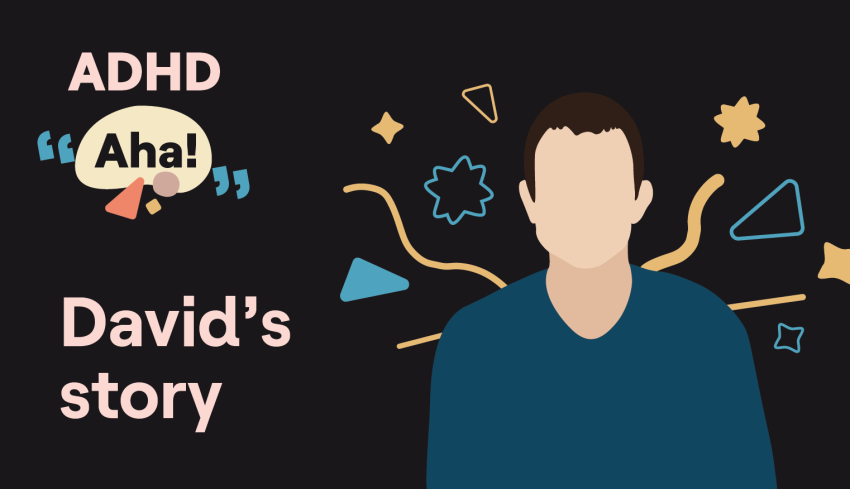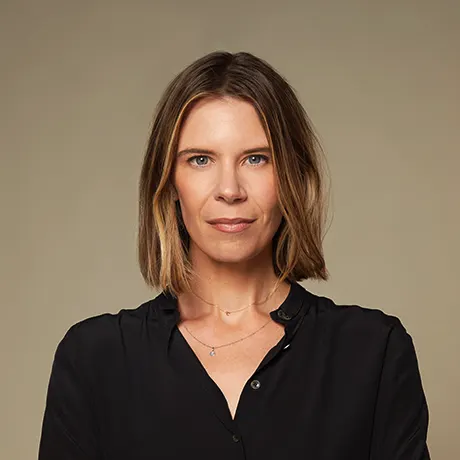Stay in the know
All our latest podcasts delivered right to your inbox.
As a child, David Flink was told to “just try harder.” But David wasn’t lazy. He was trying as hard as he could.
After being diagnosed with ADHD and dyslexia in the 5th grade, David went to a school that taught him to “try smarter” instead. There he learned to pick paths that work better for his brain.
Today, David is an author, advocate, and speaker. He’s also the founder and chief empowerment officer of Eye to Eye, a non-profit organization dedicated to improving experiences for students with learning differences. Host Laura Key and David discuss how Eye to Eye was born, and bust some age-old ADHD myths.
Related resources
David’s article, “Why just try harder” is a myth
How having mentors can help kids who learn and think differently
David: It was just like, "I got to do something." So they're telling me to try harder and there's nowhere else to try. So, thank God it finally, in the fifth grade, we went in and found out, "Oh yeah, there's actually a word to describe what Dave is going through, and there's a path forward." I mean, and I was like, "Oh! so I'm not dumb." And there's this thing called ADHD. And, you know, now we know a lot more about the brilliance that comes with that.
Laura: From the Understood Podcast Network, this is "ADHD Aha!," a podcast where people share the moment when it finally clicked that they or someone they know has ADHD. My name is Laura Key. I'm the editorial director here at Understood, and as someone who's had my own ADHD "aha" moment, I'll be your host.
I'm here today with David Flink. David is the founder and chief empowerment officer of Eye to Eye. He's also an author, advocate, and speaker. David, welcome. I'm so happy to see you again.
David: Oh my gosh, this is so fun. It's like a reunion, right? It's been years that we've known each other, but it's nice to be in your audience with all these fun people who are listening in today.
Laura: For those, obviously — our listeners wouldn't know what our relationship has been — but we have kind of crossed paths professionally multiple times. Me, with the National Center for Learning Disabilities, and then with Understood. You, at Eye to Eye, who's always been such an incredible partner for Understood and our work. You're doing such great stuff there. We're going to talk about that. But it's been so long since we've connected. We've both had two kids since we last met.
David: Yeah. How wild is that?
Laura: Yeah, mine are five and eight. Yours are...?
David: Mine are six and eight.
Laura: It's wild.
David: We started this work thinking about maybe our interest or experiences with ADHD and now thinking about my kids, your kids, all kids. I'm sure we'll be doing this in a couple of years, talking about our grandkids — not too soon, hopefully — but you know, cradle to grave. You know, this is a cradle-to-grave experience.
Laura: Yeah. Let's kind of start at the start. I know that you've had interesting experiences in adulthood, obviously as a parent and with your own diagnoses, but can we go back to nine years old? I think you know where I'm going.
My first introduction to you was when you shared an excerpt of your book, which is called "Thinking Differently: An Inspiring Guide for Parents of Children with Learning Disabilities" on our website, on Understood.org. And the title of this was, "Why 'just try harder' is a myth." And I got so much response. People loved this excerpt so much, it really spoke to people. Could you tell that story?
David: Sure, yeah. All good stories start at the beginning, so we might as well begin there, right? So, before I even would have used the words that describe my learning, like ADHD, I mean, I knew that something wasn't quite working.
Because I was sitting in school and looking around and seeing kids who could sit still in focus, and they were getting all these gold stars and smiley faces at the top of their papers because they had their homework, which I had already lost. And I was fidgeting.
And, you know, I think if I had the language of ADHD, that would have at least describe my experience. But what I quickly realized in my mind, I thought, "I just must not be smart." And part of the reason why I was getting that message is well-intentioned. Adults around me were saying, "David, you just need to try harder to sit still or to focus. We know you're smart, but clearly, you lost your homework and you're not paying attention."
And so, in my mind, I interpreted there's no harder I can try. I actually was trying my hardest. So, I thought I was dumb. And my conclusion as a little kid was, "I have two options here. Because I don't know what's going on." I can either be the "dumb kid" — which was the label I was internally starting to own and think about, which was very hard — or I can be kind of the "class clown" or the "bad kid."
And for those folks who might be listening in and know a bit of my story, I became a magician for a while, and this was not loved upon by my teachers. And so, when they asked me to sit still or focus, I would just like literally produce a fireball in class and they would say, "Just try harder, you know?" And I'd be like, "Did you see the fireball?" And they're like, "Yeah, like my hair singed."
So, I was very much the "bad kid." And I spent a lot of time, you know, in the principal's office and in the hallway. Elementary school was tough, tough, tough.
Laura: I have such a hard time picturing you as the "bad kid," but it sounds like that's the route that you went. You gave two options to yourself, "dumb kid" or "class clown." And you chose "class clown," aka "bad kid." Please, heavy, heavy air quotes. Do you think you were conscious that you were doing that at the time, or is this all in reflection?
David: I don't think I sat down and in my journal, you know, "I have two pathways." There's no Robert Frost moment here, you know, "What's the road least traveled?" I think it was just flight or fight. And, for me, it was kind of protective. And, I had this hobby that was giving me positive accolades outside of the classroom. So, when I pulled quarters out of my peers' ears, which is quite hard to say, they thought that was great. And that gave me something I could be proud of.
And so, I just went that route. And the hard part was indeed, I really wanted to do well in school. Actually, I mean, my mom is a teacher and she taught in the school. I love learning, I think actually most humans love learning. So it was quite hard to feel somehow that something was broken inside me.
Now, in retrospect, I would realize that I was making this choice, but at the time it was just like, "I got to do something." So they're telling me to try harder and there's nowhere else to try.
Laura: And you were evaluated when you were in fifth grade, is that right?
David: Yeah, you did your research. So this was all happening around second and third grade. By fourth grade, they didn't really, I mean, they still didn't really know what to do with me. And we'll do some more heavy air quotes. They said, "We're going to 'individualize’,'' that's where the air quotes go, "Dave's learning." But unfortunately, I mean this is the 80s. And again, no fault of the adults around me, I really believe that they were trying their best.
They're like, "We're just going to let Dave sit outside because he's so distractible." And I think what they also meant is "He is so distracting." So, they give me my assignment. They'd say, "Well, clearly when you're here, you're not paying attention. So, go outside the classroom." And by fifth grade, I was spending all my time outside the classroom. You can only imagine how my mom, who taught in school, walking down the hallways, would see me just sitting outside. And my grades didn't get any better. I didn't feel any better about myself.
So, thank God it finally, in the fifth grade, my folks who had the means and resources to lean in there, we went and found out. "Oh yeah, there's actually a word to describe what Dave's going through, and there's a path forward." I mean, that was like, if there could have been like a white light, hallelujah-kind-of-moment for me. I very much remember that.
I mean, sure, it's kind of scary to like go into that experience. And I'm sure folks who are listening who may be considering whether or not to go down that path with your kid, there's lots of reasons to have trepidation. But for me it was, I mean, use the word diagnosis, and that's fair. But I would say it gave me an identity. And I was like, "Oh, so I'm not dumb. And there's this thing called ADHD.
And, you know, now we know a lot more about the brilliance that comes with that brain." But at the time I was just like, "Well, thank God I'm not dumb. What do I need to know about this?"
Laura: Do you think that that's unique to receive that diagnosis and say, "Oh, this is a relief, this is an identity, this is a reason." Or is that something within yourself that you cultivated?
David: You know, I think it really depends on what your environment is. I think because I grew up with a family that was always just like cheering me on. It was like, "We just need to find that answer." And that's how that was presented to me. I know we'll jump back and forth between the present in the past, but like during the pandemic, I was the best of the two of us in our house.
My wife and I were like, "Well, who should teach our kids?" And I was like, well, "Technically, I know a bit about education," and she's a physician.
So, I started teaching my daughter and I thought, "She's for sure neurodiverse. I'm going to get her identified. And the way that I described it to her, which would have even been better for me, I was like, "We're just going to go find out how your brain works." And I actually, both of us went and got neuropychs again. I did it with her.
And, at the end, it turned out that I'm still wildly neurodiverse and she was not, and her heart was broken. It was very funny. She was like, "Wait, I'm not like you?" And I'm like, "Well, there's, trust me, there's plenty of other qualities." But she did still get a map of her brain, which was the cool part about that, and said, "Oh, what we figured out here is what your brain looks like."
And so, I think if I had that language in fifth grade, "Dave, it's not that you're broken. We're just going to go and get this picture of how you learn and think, and then we can better fit your learning towards that." I think that would have been more empowering. So yes, I think it was unusual and I think kids have a different chance now to think about that journey as one that's an enlightening one.
Laura: You mentioned that it gave you a path forward. Was there a specific path forward defined for you with this identification now that you know that you have ADHD in fifth grade? Everything was just perfect after that, right?
David: Right. Perfect. I don't even know why we're talking today. Yeah, I mean, I think a door did close, but a window opened. So, the school that I was in, which was a private school that my mom taught in, it was a Jewish day school. They were very clear. At the time, since changed, they were like, "We don't know how to help Dave." And they "invited me" — I'm doing lots of air quotes for people who are listening in — but they invited me to leave. That's like a party that you don't get to attend.
So they said, "Look, we don't know what to do with you, and you're welcome to find elsewhere." And I started my time in public school and started to look around. And I found a school that was built for kids with my brain.
And yeah, it wasn't just immediately perfect, but like, I remember showing up at this school, it's the school in Atlanta, Georgia still exists, a Mason school called the Schenck School — S-C-H-E-N-C-K, after the founder — it was a difficult name to describe to my friends who are like, "Where are you leaving?" I'm like, "I'm going to Schenck." And they're like, "Why?" "Because I have ADHD." Like, yes, this is all very confusing. We had to work on the branding.
Laura: Thank you for spelling it for our listeners, I appreciate that.
David: But I got there and I'll tell you, like the first thing that I noticed before I was like, walked into the classroom and like, half the kids were sitting in — you know, sort of what we would describe as normal chairs, whatever, with four legs — and they were like, "Do you want that or do you want a Bosu ball? I was like, "Are you kidding? Obviously, I want to Bosu ball." And just that difference.
I mean, now you go into public schools and you'll see kids — regardless of whether they have an ADHD diagnosis or not — getting that offer. But that was like, profound. And I mean, I started on the route of medication, which is super helpful and we can talk about.
But it was the environment and the feeling that there's nothing broken with you, we just have to change this environment. And I remember getting that Bosu ball and just, you know, moving back and forth all day long while I was learning, and it helped me focus. And then at the end of the year, I had amazing abs, by the way, just in case folks are curious.
Laura: Great core from all the bouncing.
David: Yeah, my core was amazing. I didn't distract as many of my peers, and I felt a lot better about myself.
Laura: The "just try harder" language. Tell me about the evolution of that in your mind throughout this.
David: One of the things that I've learned about myself, and I think about many folks who are ADHD, is actually we have a very tryhard mentality. Maybe to a fault, depending on the task. So, I mean, that language stopped being used in front of me. Period. I never heard "try harder." I mean, the language I used in "Thinking Differently" to describe the experience was, they told me to start trying smarter.
And I was like, "Oh, what does that mean?" And they were like, "Well, smarter is just picking paths that work better for your brain." So, I was able to retire that language and that feeling, I would say in about fifth grade. I mean, I think those feelings did come back and haunt me later in high school and a little bit in college.
But — I mean, some of those scars are hard to heal — but for sure, I was able to start being my own best learner, which is really what we're talking about. And it was great. It was a little bit of a 180 in terms of my experience.
Laura: Could I ask you about that experience more in college and how the "just try harder" language started to come back up? We'll move through your chronology here. We're going to fast forward now to young adulthood, which is a specialization of yours in your current job as well.
David: That's right. Yeah. I didn't know it at the time that as I was going through high school and college, that would end up being a place that I chose to focus a lot of my energy and time as an adult. So, I went to a mainstream school for high school. That was quite a special school. It's called The Galloway School. And I remember the founder used to walk around and he would have this hot water. He’d never drink coffee or tea and he’d just sit around.
When sitting with our students, I think his job was to motivate us and he would just say, "Don't play the game of school, play the game of learning." And so, I wasn't so anxious or nervous about whether I was trying hard enough, but I didn't continue to talk about my ADHD and dyslexia and other things I came to understand about how I learned. I didn't talk about it openly.
So, where things came to haunt me was — I said I gave me an identity in fifth grade — so I stopped identifying with those things. But unfortunately for me, that is actually how I learned best. So I would get accommodations. The school was really good at giving me extra time on a test, or letting me be in a less distracting environment for assignments and things.
But because I didn't understand that that was actually something I needed to talk about, I lost the sense of community, and I started to feel again when I struggled, that it was about me and it was a real hit to my self-esteem. So I was like a duck in the water. On the top of the water I looked smooth, but underneath my legs were just moving so fast and so much harder than they needed to.
Because while the school was giving me anything that they thought I needed, I didn't spend the time to think about what I needed. And it didn't really come to a head so much in high school, I was able to succeed in high school. There were some hits in the sense that I wasn't maybe as social as I would have liked to be, or made as many meaningful connections as I think I could have and that mattered to me. But when I got to college, things just got too hard and I really had to start doing things differently.
Laura: Tell me about the duck in the water. What were your little feet doing?
David: Everything took twice as long as my peers. So from 9 to 5 I'd go to school and do whatever extracurricular activities I had time for. And that all looked really good. All my peers thought, "Wow, Dave's like," you know, I was actually top of my class and folks would ask me to help them with assignments and stuff. But then I go home and, I mean, I'd work till one, two, three in the morning. And then get back up three hours later to go to school.
I mean, I was just dragging. And I remember my parents literally saying to me, "David, like, why are you pushing yourself so hard?" You know, they always say, "We love you. We're proud of you no matter what." They always held me to high expectations, but they never put pressure on me. I put pressure on myself, which I think mattered, actually.
And so, I ended up going to an Ivy League school, which was like, shocking to me. Because if you'd asked any of my teachers, especially the ones in third grade with singed hair, they would have told you, "This guy's gonna be lucky you graduated from high school." And they told me that to my face at times, which was really hard to hear.
Laura: This is something that I struggle with so often. Even though I'm obviously surrounded with community, I have a deep understanding of who I am as a person with ADHD, but it's not pressure that people are putting on me. It's pressure that I put on myself. And I am just, I am that duck. And sometimes people see the duck, sometimes I flip over and they're like, "Whoa, why are you why are you freaking out?" for lack of a better term.
And it's so hard to articulate the thought process and the anxiety that comes from worrying that you're not doing enough and worrying that you're going to fall behind. I'm just wondering, selfishly, if you can describe what that feels like, in your body or in your brain, when you're in those 1 AM moments and you're like, "Oh, how is this going to resolve itself? This is impossible."
David: I think I've done a lot of work as an adult to go back and kind of understand those experiences so as to not to repeat them. So, we think about the time for me and I think for many kids, where still the "try harder" sort of methodology or theory is put on on kids shoulders. I had to unpack that I was smart as a kid, and then — I loved you describing the flipping over of the duck — I think when folks saw that, I was actually given praise for being such a hard worker?
And I wasn't really trying smarter, the way that I had been taught in middle school, I was just kind of pushing harder and harder. And I think what changed in college and what certainly changed as an adult, is recognizing that I don't just have to always put everything that's important to the side to do the only thing that's being asked of me. And I don't have to sacrifice my mental health or my physical well-being or my relationships so that I can get the assignment done.
And it was because of college and sort of being able to own my labels more, that I think I was able to come to this different place. But I had to unpack what happened to me in high school and why was I trying so hard to mask? We talk about masking a lot now. Again, so much of this is language. I was basically told without it being explicit, "Don't talk about your ADHD that won't serve you well. The world will think you're stupid if you do."
And in fact, now we know it's the opposite. But as a kid, that sticks. I mean, now here we are, right on the air. So many people listening to us about our stories and hopefully, my hope — I don't know for you when you started all of this — but, you know, Laura, if we do anything right today, I hope we encourage other people to just go tell their story to someone. Because they're brilliant, right? And it's not in spite of being ADHD. It's "aha!" Because, right?
Laura: Thank you! Look at that. I appreciate it, that is what we're trying to do here. And yeah, it stuck out to me from what you just shared, that you got praised when your duck flipped over and they saw how you were moving. That sounds detrimental, right? To get praised for the "Oh, you're just going nonstop."
David: Yeah. No one said to me, "That's amazing. Congratulations. You literally got 100%. That's very rare." And I think in part because I wasn't flipping over that much to show how hard I was working. But no one said to me...
Laura: I need to know your secret. I'm not good at masking. I flip over all the time.
David: Well, at some point you get pushed over. That's actually kind of the point. Like, I think if people really understood what I was going through, they may have intervened sooner, but they didn't right? Especially, I mean, my parents were so good to me. And I mean, I think they had a sense of it, but they also helped me through it. And that's why I did so well in high school.
And really, it was when I lost my parents, when I went to college that I had to, like, get better on, like doing stuff for myself and taking care of myself because they took such good care of me. But the school really didn't know. So it's, again, I think there's so many well-intentioned educators and professionals in schools who just don't see it.
Like, if you saw me during the school day — I mean, maybe you think I was a little sleepy — but let's be honest, for anyone who's got a high schooler, they're probably sleepy right now. I mean I did run on a little bit of sleepiness in high school.
Laura: Why is "just try harder" a myth?
David: So, the problem with "just try harder" is two things. First, at no point in that statement are we actually going beneath it to understand what's in the try. What are we asking them to try harder? You're probably just asking them to do the same thing over and over again, and like the old adage — doing the same thing over and over again and expecting different results is actually not a good thing to do, right? — so you bang your head against the wall all day long.
Eventually the wall will come down, but you'll hurt your head while doing it. And then, the second piece of that is, we're not offering alternatives. So even if you get to the end and the wall comes down because you bang your head against it, you know, is the goal to bring down the wall, or is the goal to figure out how to bring down walls more efficiently for you?
And that second piece has been my life's journey — personally and professionally — to help people understand their alternatives. There's a million ways for any person to get through life and to learn and to think and to grow. And this idea that anybody is one-size-fits-all in our education or in our world. That's the myth. So, the phrase "try harder" is just laden with misunderstanding. And if we actually show a bit more empathy and sympathy, we can actually help everyone learn better.
Laura: How soon out of college did Eye to Eye come to be?
David: So, Eye to Eye was born into an idea, out of a little bit of chance and a lot of belief. And the chance part was because I stepped onto my first day of being a student at Brown University, and I again, I wasn't talking about my learning style at all. And the thing I was sure about was that actually, my mom is an educator, and the educators that surrounded me got me through school despite challenges. So, I wanted to be an educator. So I signed up for an Ed class, which was very exciting for me.
I wanted to be a teacher so I could help kids the way the people had helped me. And my first assignment was a writing assignment, and I went back to my dorm room and asked my roommate to proofread this assignment that I had done, and he read it and gave some suggestions, and I turned it in. And when I got it back, there was like a ton of errors.
And I was really upset that my roommate, who had proofread this paper for me, had failed to do the thing I had asked him to do, which is like, proofread it. Now, in fairness, I hadn't disclosed why I was asking him to help me.
And so, when I went back and confronted him, I said the thing I thought I wasn't supposed to say. I was like, "Look, I asked you to proofread this paper because..." I just blurted out, "I'm dyslexic, I have ADHD. I can write great ideas, but the grammar and the spelling, and there's a lot of mistakes that come with the way that my brain works." And he started laughing. And from that laughter, there was like crying. And there was Iike a snot situation that occurred.
And then through all of that, he blurts out, "Well, I also have..." you know, we used a language of learning disabilities back then, right? And so here we are. That's the chance part. The two of us are neurodiverse, right? And the idea of Eye to Eye birthed from, "Wait a second, we need to tell our stories." If we had told each other, well first off, he wouldn't have proofread my paper.
But we all also, we realized that by sharing our stories up front and making them part of our identity, we can feel better about ourselves. We could get better accommodations. We could choose classes that fit our learning style better. So, what Eye to Eye came to be was this idea that young people can share our stories with each other and with our society, and to make the world a better place.
So it began with my roommate and a couple other people that we met who are neurodiverse, going and mentoring in a local school with kids who had the same learning styles as us. And it's since grown to a movement where we do mentoring. We have clubs where neurodiverse students and their allies come together in community to support each other, but also to think about how to make school more accessible.
And we now have neurodiverse young people who actually train teachers. So they go into schools and tell their stories to educators so the educators can better understand the experiences of their neurodiverse kids. So it's really been quite a journey. And I was 18. I mean, it's been 25 years, so I'm 43, right?
And I never would have thought the thing I was doing which was starting with telling my roommate — out of complete duress, but it turned out good — and then telling one young person at a school down the street, and then so many more would end up being this whole movement.
And I am glad I ended up majoring in education because it has proven to be useful. But, I didn't end up a classroom teacher, and instead I ended up helping to lead this organization that educates educators and young people and parents and just what is right with people who are ADHD. And it's been quite a journey.
Laura: I didn't realize that it was something that you started right out of college. That's incredible.
David: It was very ADHD. It's a very ADHD idea, right? You start a thing without realizing what you're doing. We often jump first and look back as we're, like flying through the air. And for me, I mean, certain problems arise. But in this particular instance, a really good thing came about.
Laura: Yeah, everyone needs to check it out. It's eyetoeyenational.org. You do such great work. And one of the questions I want to ask you is related to, I think you call them the Eye to Eye ambassadors. Can you, I guess, first tell us who the ambassadors are?
David: So they're all young people. And all we actually train them to do is to be able to share their story in a way that's accessible to others. I don't have to teach anybody what it means to be neurodiverse. They already know, right? That's their life's journey.
We just teach them how to be good storytellers. We connect them with the media. We connect them with schools. We connect them with their peers — which really just sometimes means giving them a T-shirt that they can wear around campus. It says something like ADHD and proud — and then it turns out that others come and find them.
So, there's a lot of very interesting ways to create a movement. And it turns out giving people permission to do the thing they already want to do is the easiest way to start a movement.
Laura: David, it is so good to catch up with you. I'm so grateful that you took this time with me, with our listeners today. Everybody check out Eye to Eye. It's eyetoeyenational.org. David's book, you've got to check it out. He wasn't actually a parent when he wrote it, but we know that it's a great book. "Thinking Differently: An Inspiring Guide for Parents of Children with Learning Disabilities." Yeah. Thank you David. I hope to see you in person soon.
David: Yeah Laura, this is great. And just excited to keep down this journey of life with you and with all of your listeners. And we're all figuring it out together. Right?
Laura: We'll invite you back on when we have grandkids.
David: That sounds great. Yeah.
Laura: Grandparenting with ADHD.
David: See you in 20 years.
Laura: You've been listening to "ADHD Aha!" from the Understood Podcast Network. If you want to share your own "aha" moment, email us at ADHDAha@understood.org. I'd love to hear from you. If you want to learn more about the topics we covered today, check out the show notes for this episode. We include more resources as well as links to anything we mentioned in the episode.
Understood is a nonprofit organization dedicated to helping people who learn and think differently, discover their potential and thrive. We have no affiliation with pharmaceutical companies. Learn more at understood.org/mission. "ADHD Aha!" is produced by Jessamine Molli. Say hi, Jessamine!
Jessamine: Hi everyone.
Laura: Briana Berry is our production director. Our theme music was written by Justin D. Wright, who also mixes the show. For the Understood Podcast Network, Scott Cocchiere is our creative director, Seth Melnick is our executive producer, and I'm your host, Laura Key. Thanks so much for listening.
Host
Latest episodes
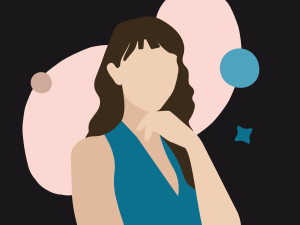
April 30, 2024
Author Ellyce Fulmore struggled with impulsive spending and doing “basic” daily tasks during the pandemic. The pain of coping with that led to her ADHD diagnosis.
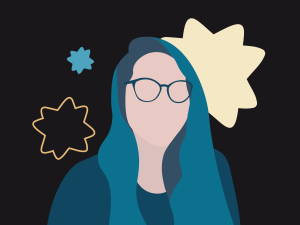
April 16, 2024
ADHD coach Jaye Lin was a gifted kid with undiagnosed ADHD. Now, she’s building communities and helping others cope with ADHD burnout.
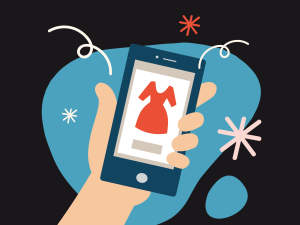
April 2, 2024
Writer Paulette Perhach had money coming in but struggled to keep it in her bank account. An ADHD diagnosis brought her struggles into perspective.
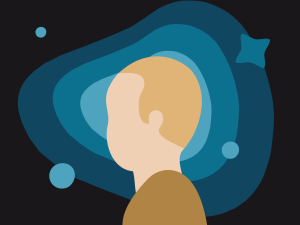
March 5, 2024
Peter Jones used to feel better saying he had a hearing problem rather than considering ADHD. Now, he knows he has ADHD and isn't afraid to say it.
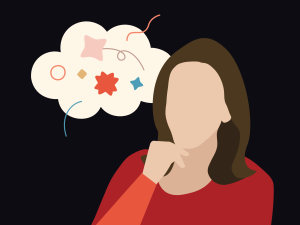
February 20, 2024
Before her ADHD diagnosis, ADHD coach Emily Weinberg thought she was just lazy. But in reality she was stuck in “analysis paralysis.”
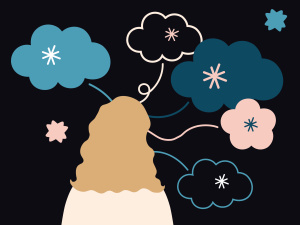
Carol Blumenstein was called an unteachable student. Now, she knows she has ADHD and dyslexia, and supports her five kids who learn differently, too.
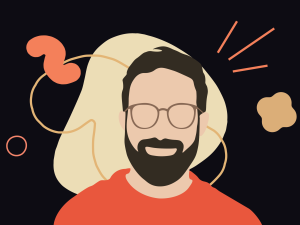
January 23, 2024
Executive coach, actor, and former criminal defense attorney Ernest Anemone shares his ADHD story — and why he questions the term “attention deficit.”
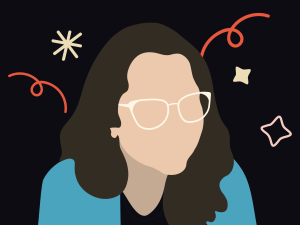
January 9, 2024
ADHD and post-traumatic stress disorder (PTSD) symptoms can look similar. And they can morph into what Hannah calls “a trauma ball of blame.”
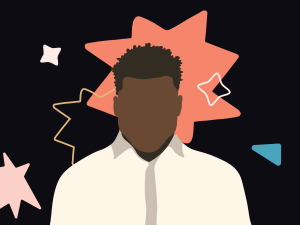
December 26, 2023
Livingston Steele was diagnosed with ADHD about a year into working at Understood.org. His experience and work have given him immense empathy for people with ADHD.
